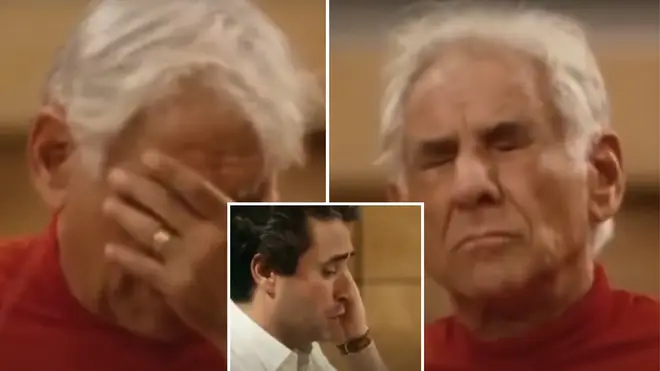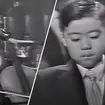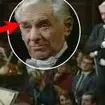Star tenor relentlessly corrected by Leonard Bernstein in excruciating rehearsal footage
9 December 2021, 17:47 | Updated: 9 December 2021, 18:02

When two musical greats found excruciating tension and doubt in the studio – but ultimately produced one of the great recordings.
The 1984 recording of West Side Story is one of the all-time greats. Made by Deutsche Grammophon in New York, it brought together three of music’s most illustrious names – American composer-conductor Leonard Bernstein, who wrote the music for West Side Story, New Zealand soprano Dame Kiri Te Kanawa, and Spanish tenor José Carreras.
But here, in a now-viral clip from the documentary The Making of West Side Story, we get a rare insight into a rather tense recording session, before the final musical vision was complete.
In the video below, Carreras – one of the famed Three Tenors – is rehearsing Tony’s rhythmically awkward solo, ‘Something’s Coming’, working to push the three-note ostinato in the vocal melody just ahead of the beat, as the studio orchestra permeates the music with Bernstein’s ingenious but unnatural syncopation and cross rhythms.
And here, something isn’t quite synching up. Bernstein makes no attempt to hide his frustration. Head in hands, the composer sings over the opera star to correct him, as the instrumentalists and sound engineers squirm in their seats.
“You’re ahead of me,” Bernstein tells a mortified Carreras. “Watch me not the music, and if you make a mistake, we’ll go back,” he continues. “You know this. When you look at the music, you sing wrong words. Just look at me.”
Read more: Why did Bernstein build West Side Story around 'The Devil's Interval'?

Tenor Keeps Screwing Up while Bernstein Conducts - Awkward Sequence
Behind the scenes, a sound engineer steps in over the tannoy to tweak a pronunciation point (“‘coming’, not ‘calming’”, he tells Carreras).
“John!” Bernstein bellows. “Please don’t do this. Don’t give elocution lessons over the microphone.”
Collecting himself, the composer tells the musicians to go from “32 – bar 32.”
Tentatively, Carreras replies: “I don’t have numbers maestro, I’m sorry about that.”
“I’ll sing it for you,” Bernstein sighs. Carreras picks up the line, but with all the tension of the session, moves into the wrong key.
“Maybe we should break and listen to it?” suggests one of the team backstage.
Clearly eager to get the recording in the bag, Bernstein begrudgingly agrees, and eventually concedes: “I’m afraid we need to retake.”
Read more: Bradley Cooper’s Leonard Bernstein biopic is officially coming to Netflix

Kiri Te Kanawa - The Making of West Side Story Documentary
The pair try again, but the syncopated rhythms are still causing problems. “Getting ahead,” Bernstein says.
“Bar 63, take... 135,” we hear over the tannoy. Carreras bites his nail apologetically.
We can only imagine the sigh of relief at the end of that working day…
In a brilliant interview with Bernstein biographer, Humphrey Burton, for Gramophone magazine, Dame Kiri recalls working with Bernstein. “The funniest thing of all was when he suddenly stopped conducting and said, ‘That’s the tempo, that’s it.’ And I laughed, because it was like having Mozart with you, you were getting it from the master himself.
“He’s a man of many emotions. You can see his moods, his frustrations, his happiness, his wanting to perform to people. That’s the thing that makes the man interesting.”
In the end, Bernstein knew that what they had created in the studio that day was something special. As he told Burton: “l’d always thought of West Side Story in terms of teenagers and there are no teenage opera singers, it’s just a contradiction in terms. But this is a recording and people don’t have to look 16, they don’t have to be able to dance or act a rather difficult play eight times a week.
“And therefore, we took this rather unorthodox step of casting number-one world-class opera singers. I suppose the only foreseeable problem was that they might sound too old – but they don’t, they just sound marvellous!”
Here’s the incredible final album, a testament to the artists’ handling of a particularly torturous rehearsal process, to produce one of the iconic classical and musical theatre recordings.






















